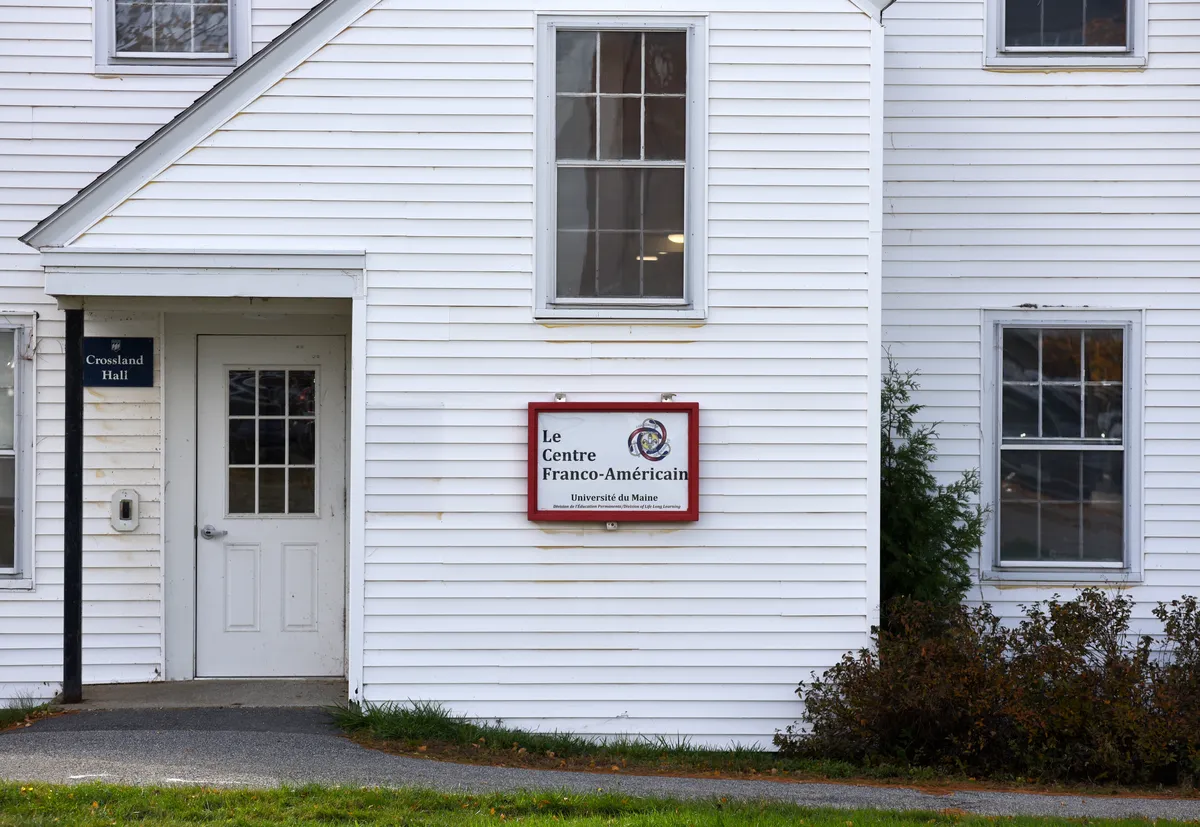Copyright Bangor Daily News

The University of Maine is tearing down the oldest building on its campus to add 200 parking spots. Crossland Hall has been on Marsh Island since 1833, before the university was built. It’s been a farmhouse, fraternity house and, most recently, a home for the Franco-American Centre. The university has slated the 192-year-old building to be demolished this winter because of $10 million in deferred maintenance costs and a need for more parking space. The additional parking is needed since the multiyear expansion of UMaine’s athletic facilities, funded by investments from the Harold Alfond Foundation, has reduced the spaces available nearby, officials said. The university wasn’t able to make “proper investments” into Crossland that would keep the building open and viable for the Franco-American program to continue to call the hall its home, said Gabriel Paquette, interim executive vice president for academic affairs and provost. “While it’s a building that’s had important functions over the years, and while it’s been a really good home for various offices, and programs including the Franco-American Centre, it’s also, you know, an old building that, frankly, would need significant investments in order to be brought up to any kind of standard,” Paquette said. Crossland is not deemed a historic building or site by the National Register of Historic Places or the Maine Historic Preservation Commission, meaning preservation is not required. The demolition was first announced to the Centre’s staff in May 2025 in an email from UMaine administrators that said the “projects will restore approximately 200 parking spaces affected by the recent and planned construction activity on the north side of campus, improve traffic flow and relocate Franco-American Programs to a renovated facility designed for long-term growth.” UMaine’s student newspaper, The Maine Campus, first reported on the demolition. The demolition of Crossland is one of multiple steps that will change the north end of campus to allow for easier parking and campus accessibility for students and faculty, Paquette said. Construction on the Alfond Arena and Morse Arena will displace 200 parking spaces, making it more difficult for anyone to traverse campus and make pedestrians less safe, Paquette said. Crossland Hall’s location combined with the funding needed to maintain the building made a simpler decision for the university, Paquette said. “It was easier to make that decision, not only because of the need that we have for that particular space, but more importantly, because of the state of that building, and the fact that we were able to identify and pursue what we consider to be a really viable alternative, I think is pretty exciting,” he said. Because of the demolition, the Franco-American Centre will have to move buildings at the end of this semester. The Centre will first temporarily move to Libby Hall, where the university will spend $50,000 renovating a space for the program. Within the next two years, the Centre will move again to the Environmental Science Laboratory, which will undergo a $500,000 renovation. The demolition and new construction have been part of campus plans created by the university that are laid out over decades. Paquette said the decisions were not “taken lightly, and they’re not decisions that are taken overnight.” Despite moving to what will become updated spaces, the 23 years the Centre has been housed in Crossland have left some members feeling saddened or unheard by the university because of the move, said Alex Emery, a senior at UMaine and president of the Franco-American Resource Opportunity Program. University officials first met with student stakeholders on Monday, Emery said, but administrators aren’t taking the building’s historical factors into account when planning to demolish it. “We know that they don’t have the full picture, and are declaring its value based on what we think is not the whole picture. And so we think it’s rash. It’s, you know, not well planned through or phased out,” Emery said. Emery, who spoke with members of the Centre and resource program, said more than half of the students affected by the move didn’t want it to happen while others said they felt scorned by administrators for wanting the building to be preserved and maintained. The group does understand that it will be in an updated building, but the location on the north end of campus is more secluded and the demolition of a building still on its original deed from nearly 200 years ago should carry more weight than an email sent to staff that allows no input, Emery said. “What it comes down to is that we’re so close to erasing our own path and not remembering it,” he said.



